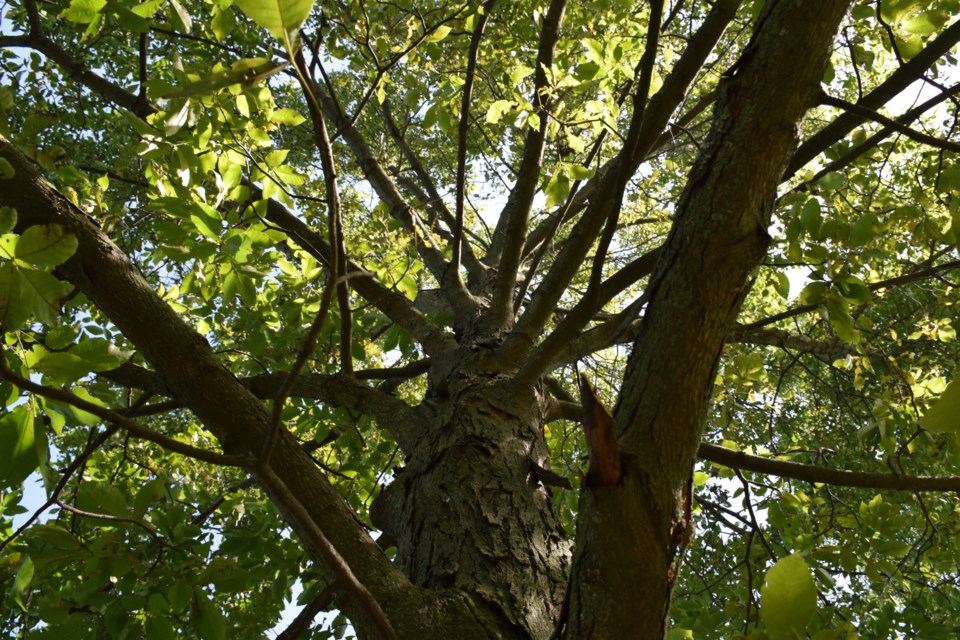To avoid becoming even more like a digital machine, the human body need a little time in nature. The digital world stresses the body out, nature brings a balance back to the body.
That’s the thinking of Angela Herzog, a Guelph body-oriented psychotherapist who runs Embodied Healing. For the second year, Herzog is issuing the Nature-a-Day challenge, inviting participants to de-stress by reconnecting with the natural world.
Thirty minutes a day in a natural environment can do wonders for one’s sense of wellbeing, she says.
Human beings have an age-old connection to nature, but our body responses are highly adaptable. The nervous system will change to adapt to changing environments.
Relatively new digital technologies – television, computer, cellphone – accelerate body responses, speeding us up to an unnatural degree. Our bodies become somewhat more machine-like, she indicated.
Treating our bodies like machines comes at a cost.
“It creates a hyper-arousal in our nervous system,” Herzog said. “Our nervous system typically needs this rhythm of activation followed by some settling. When our bodies can settle, that is when digestion can happen a lot easier, when we can rest a bit more and recover, so that our bodies are ready for the next stress.”
In the absence of that slowing down and recovery phase, the body is more susceptible to illness, and anxiety and mood disorders are more common. Nature helps restore the natural balance.
The Nature-a-Day challenge is pretty simple. Participants sign up for free here. They can then join a private Facebook group where Herzog will post daily videos and voice-recordings that offer mindfulness exercises related to really getting the most out of the senses while in nature.
Participants pledge to set aside 30 minutes each day throughout the month of June to spend time outside, finding a place to sit or walk, being curious and playful as they unplug from the digital outlet for a time and get tuned into the natural environment.
The five senses should be fully utilized, and the bodily changes should be noted. The private Facebook group is where experiences can be shared. Education about stress and the nervous system, and guided exercises to help participants tune into nature are also included.
As a therapist, Herzog is dedicated to the study and practice of somatic experiencing, which treats trauma-related health problems.
“We learn about how the nervous system is orienting to the environment and always picking up messages,” she said.
Using her own experience as an example, she said she found herself orienting to machine-like rhythms as she became more reliant on digital technology.
“I found that I needed to slow down, because I was orienting to really fast things,” she said. “I needed to get outside. That’s when I thought of offering this idea to Guelph.”
There is an important change to the Nature-a-Day challenge this year.
“This year I wanted to bring in a little bit more of the element of the reciprocal relationship with nature, so that we’re not just using nature for our benefit, but thinking about what we can give back to nature,” she said.
An immersion in nature, particularly nature near a major urban centre, can make a person mindful of the wounds nature has sustained, Herzog suggested. Thinking about the ways we can help the natural environment heal is integral to the challenge.
Herzog is hoping to get 60 participants in the challenge this year, double the number from the first year.
